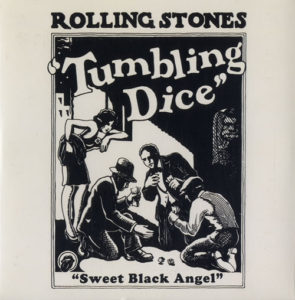
Dante’s hell was a complicated place, as this map by Botticelli suggests. Although Rodney Atkins’ advice “if you’re going through hell, keep on going” appears sound, winding through all the complexities of the ADA and FHA can seem like descending through all nine levels of hell. Nonetheless, I’m happy to act on a temporary basis as Virgil and see how far we can get. No promise about whether we’ll find a Beatrice to take you to Paradise. More


 “Short sharp shock” is too good a phrase not to re-use, as proved by the fact that after its first use by Mary I of England to describe her hope that burning a few protestants would bring others back into the fold and its popularization by Gilbert and Sullivan it turned up in a song by Pink Floyd and as the title of Michelle Shocked’s first album. My use probably won’t get added to the Wikipedia page on the phrase (7) but it suits a discussion of braille gift card litigation and the effect of TransUnion v. Ramirez in ADA litigation.
“Short sharp shock” is too good a phrase not to re-use, as proved by the fact that after its first use by Mary I of England to describe her hope that burning a few protestants would bring others back into the fold and its popularization by Gilbert and Sullivan it turned up in a song by Pink Floyd and as the title of Michelle Shocked’s first album. My use probably won’t get added to the Wikipedia page on the phrase (7) but it suits a discussion of braille gift card litigation and the effect of TransUnion v. Ramirez in ADA litigation. The Rolling Stones famously asked that they be rolled like a pair of tumbling dice, and looking at recent Title III ADA headlines reminded me of just what a crapshoot ADA litigation can be. The good news for businesses is that the district attorneys of San Francisco and Los Angeles have filed suit against the Potter Handy firm and its partners alleging that the firm filed false lawsuits under the ADA.¹ Hard on the heels of the action by the local authorities a federal judge in San Francisco, Vince Chhabria, entered a series of show cause orders requiring the Potter Handy firm and its clients to file sworn declarations providing factual support for their allegations concerning having visited and intending to visit ADA defendants in the future.² I don’t know how Potter Handy and its clients will respond to these orders, or what Judge Chhabria will do with those responses, but within days of these actions a federal judge in San Jose entered an all too typical order allowing a case to proceed despite being more or less identical to those being handled by Judge Chhabria. Sevens or snake eyes, in ADA Title III matters defendants and plaintiffs are at the mercy of the random assignment of judges done with each federal lawsuit filed.
The Rolling Stones famously asked that they be rolled like a pair of tumbling dice, and looking at recent Title III ADA headlines reminded me of just what a crapshoot ADA litigation can be. The good news for businesses is that the district attorneys of San Francisco and Los Angeles have filed suit against the Potter Handy firm and its partners alleging that the firm filed false lawsuits under the ADA.¹ Hard on the heels of the action by the local authorities a federal judge in San Francisco, Vince Chhabria, entered a series of show cause orders requiring the Potter Handy firm and its clients to file sworn declarations providing factual support for their allegations concerning having visited and intending to visit ADA defendants in the future.² I don’t know how Potter Handy and its clients will respond to these orders, or what Judge Chhabria will do with those responses, but within days of these actions a federal judge in San Jose entered an all too typical order allowing a case to proceed despite being more or less identical to those being handled by Judge Chhabria. Sevens or snake eyes, in ADA Title III matters defendants and plaintiffs are at the mercy of the random assignment of judges done with each federal lawsuit filed.  Pictures of bombed out buildings and civilian casualty counts are a reminder that aggravating and expensive as ADA and FHA lawsuits can be, taking these disputes to court is a luxury most people in the world do not enjoy. For those of us who can engage in a civilized discussion of legal issues, here are the latest cases and other news. You’ll see where I think the courts and administration have gone wrong, but I’d rather be here than most of places in the news these days.
Pictures of bombed out buildings and civilian casualty counts are a reminder that aggravating and expensive as ADA and FHA lawsuits can be, taking these disputes to court is a luxury most people in the world do not enjoy. For those of us who can engage in a civilized discussion of legal issues, here are the latest cases and other news. You’ll see where I think the courts and administration have gone wrong, but I’d rather be here than most of places in the news these days. The last six weeks have seen some important or at least interesting decisions under the Fair Housing Act and Title III of the ADA. If there is any common thread, it is that courts in general seem increasingly reluctant to give serial plaintiffs the benefit of the doubt on dubious pleadings while some judges continue to treat private enforcement as a legitimate means to advance the policy goals of these statutes. This is part 1 of a 2 part blog, so stay tuned . . .
The last six weeks have seen some important or at least interesting decisions under the Fair Housing Act and Title III of the ADA. If there is any common thread, it is that courts in general seem increasingly reluctant to give serial plaintiffs the benefit of the doubt on dubious pleadings while some judges continue to treat private enforcement as a legitimate means to advance the policy goals of these statutes. This is part 1 of a 2 part blog, so stay tuned . . .